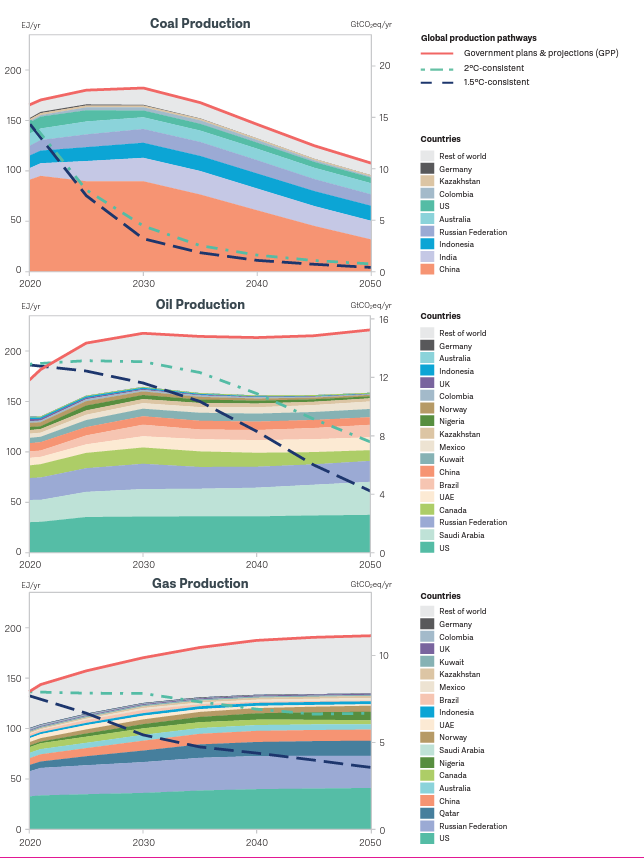The world’s biggest petrostates, including Saudia Arabia, the US, and the UAE are planning major expansions to fossil fuel projects. The UN has called these agendas a move of ‘insanity’ that would ‘throw humanity’s future into question.’
You know what else this world needs? A lot more carbon emissions.
Well, not exactly. Not at all, actually. And yet, that seems to be the continued thought process inside the brains of leaders in charge of petrostates.
The UN – which seems to do a lot of talking and not a lot of doing these days – has released a new report about the world’s fossil fuel producers planning expansions for projects that would ‘blow the planet’s carbon budget twice over’.
These projects involve ramping up the production of coal, oil, and gas across India, Saudi Arabia, and Russia, as well as the UAE, US, and Canada. It’s no secret that in recent years, the latter three have made major moves to become major oil producers.
Considering that the use of fossil fuels for energy has been listed as the number one cause of climate change, the UN labelling these plans ‘insanity’ seems pretty on the mark.
Along with contradicting global efforts to mitigate environmental destruction, these plans contradict emission reduction targets set out by each of these countries at previous climate summits. So let’s see how serious these plans could be.






















